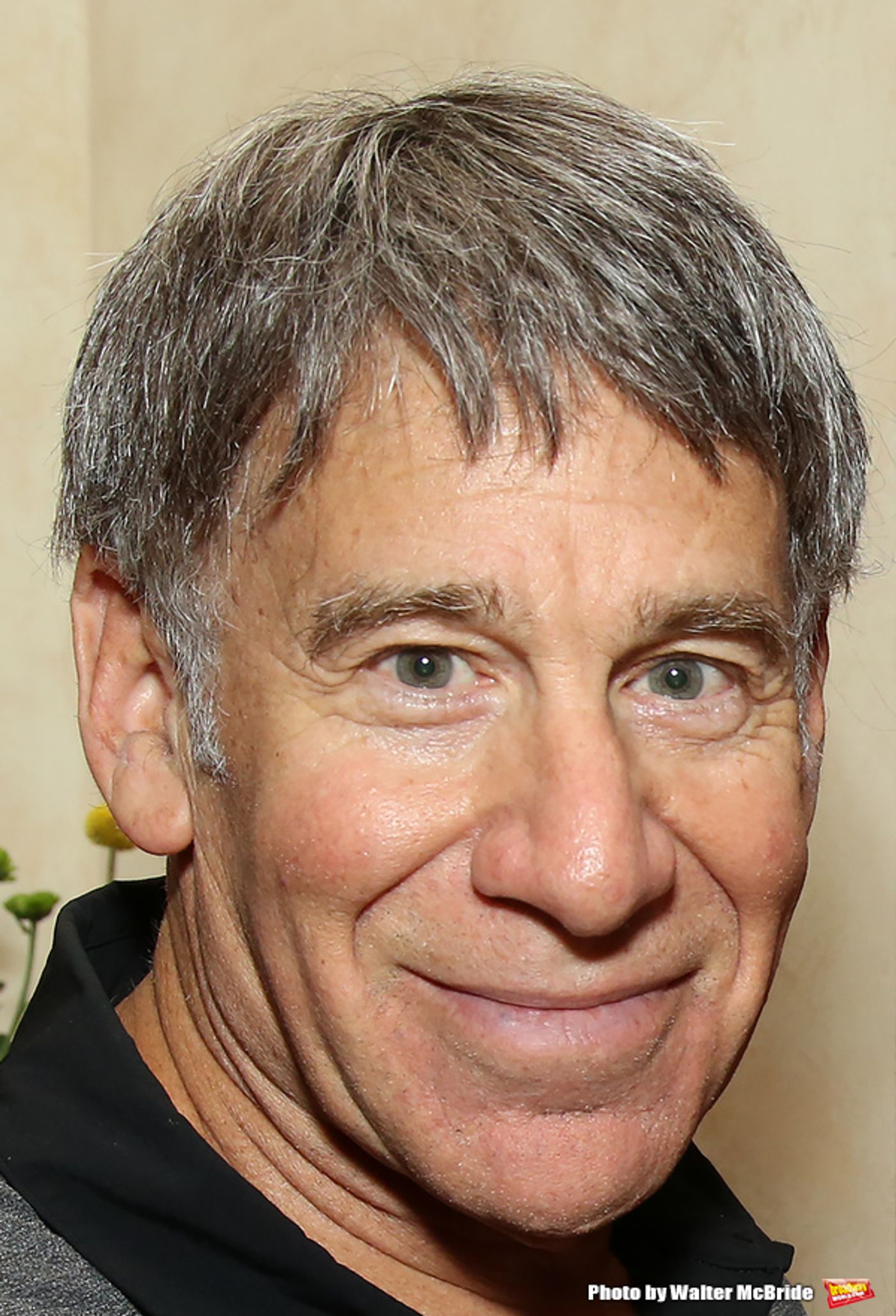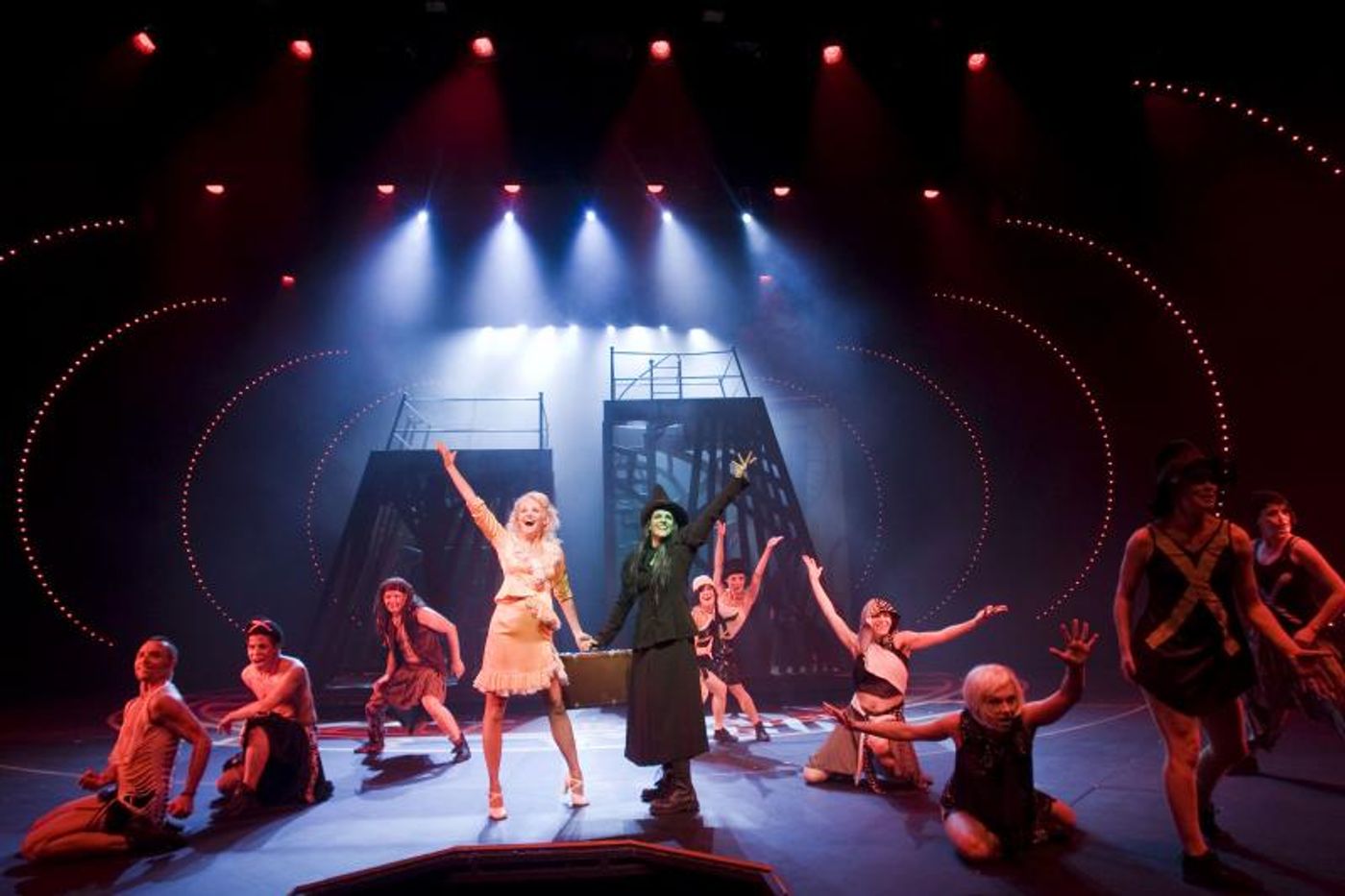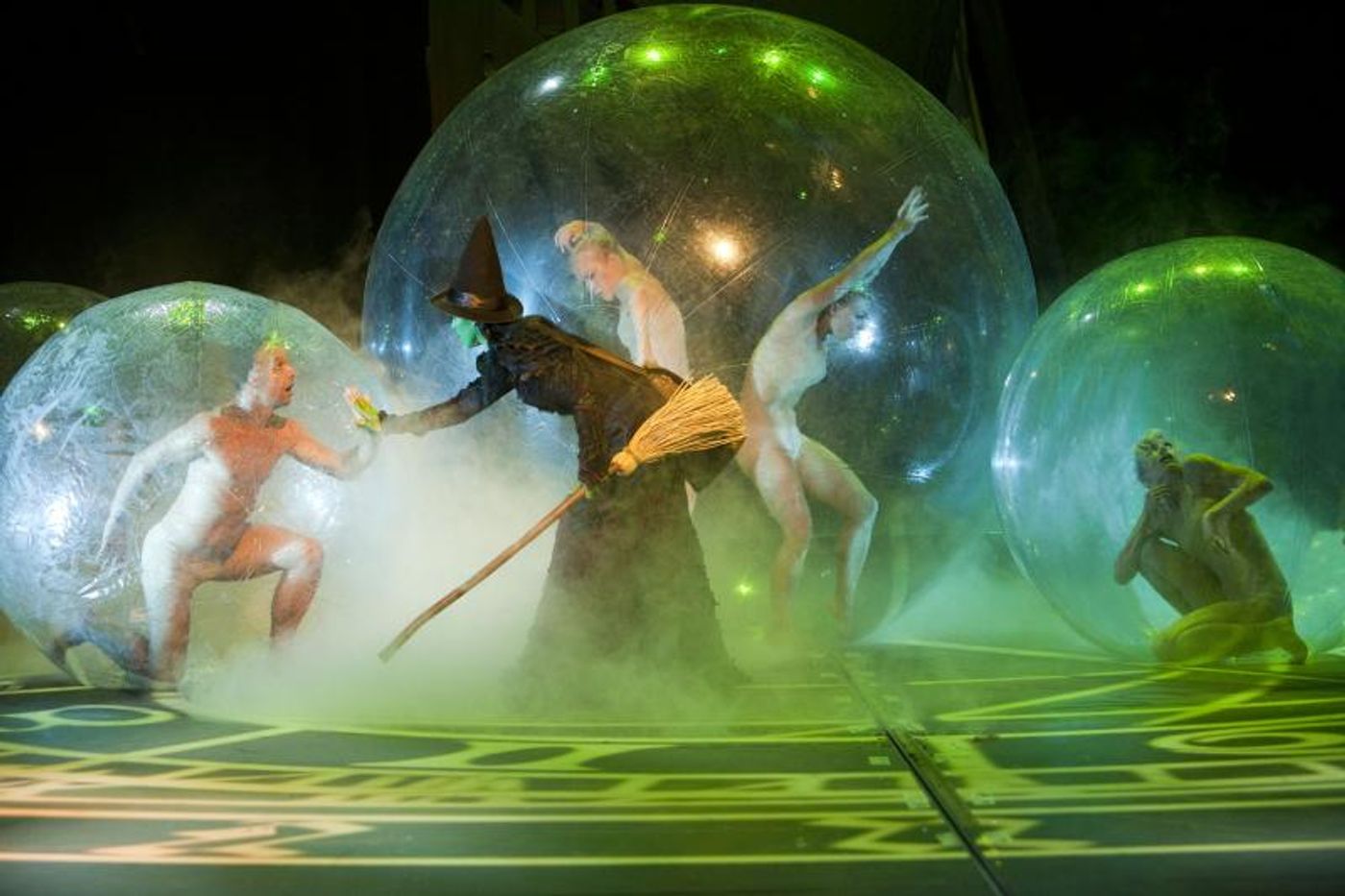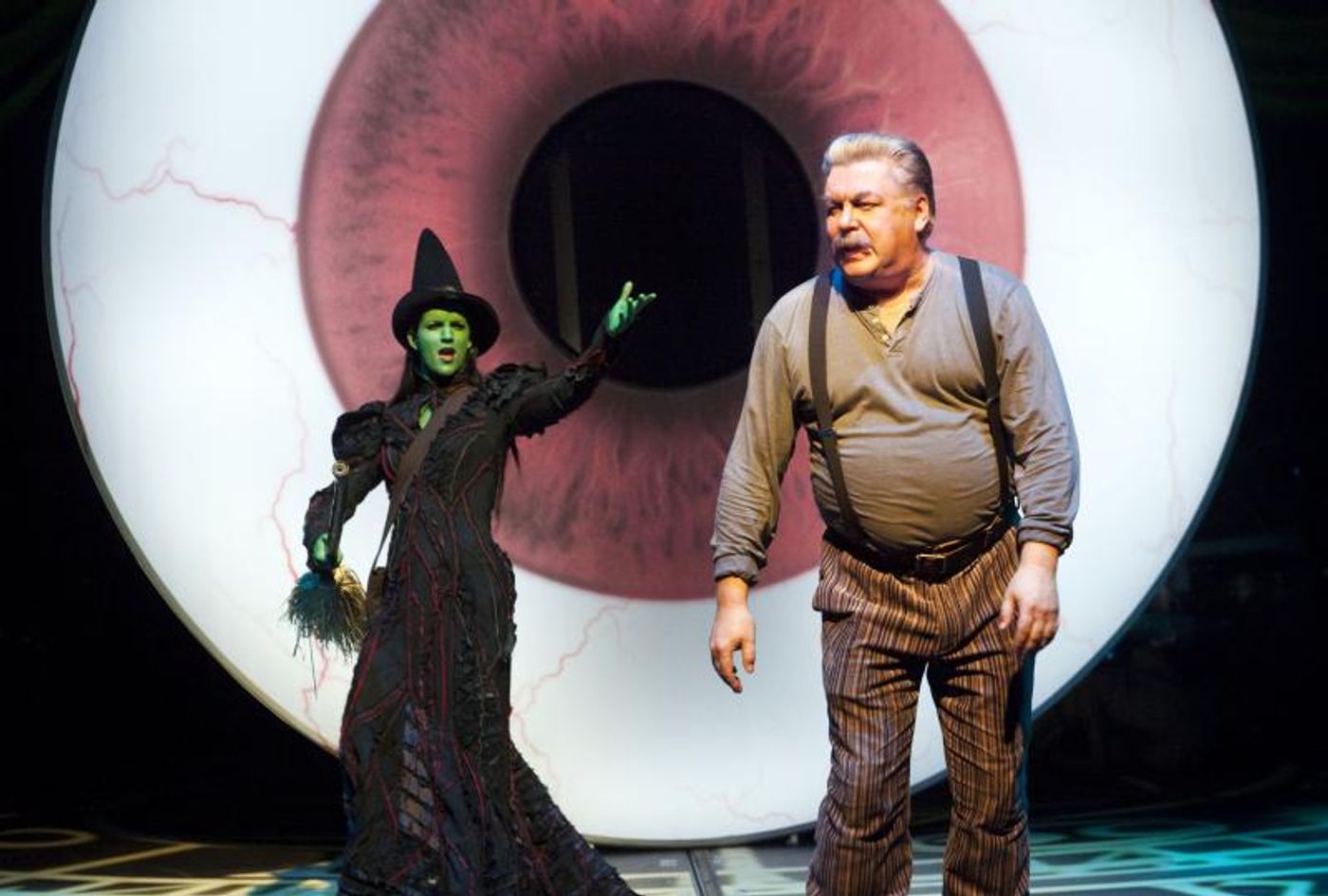Interview: Stephen Schwartz on WICKED Across Cultures
 The Broadway musical phenomenon that is Wicked has become the very definition of defying gravity. Not only is it the 6th longest running Broadway musical of all times, it's been translated into 8 languages, performed in 15 countries, and seen by almost sixty million people worldwide.
The Broadway musical phenomenon that is Wicked has become the very definition of defying gravity. Not only is it the 6th longest running Broadway musical of all times, it's been translated into 8 languages, performed in 15 countries, and seen by almost sixty million people worldwide.
So how does a successful Broadway musical, derived from a uniquely quintessential American fairy tale unfamiliar to most of the world become an international sensation? As an industry expert in intercultural communication with a life-long passion for musical theater, I was determined to find out.
With production stills from several Wicked foreign productions to guide our discussion, I met with Wicked's legendary composer and lyricist Stephen Schwartz on several occasions to discuss his experiences collaborating with creative teams from other cultures, and the challenges he encountered adapting Wicked for audiences around the globe. The following excerpts are taken from those discussions.
There's a lyric you wrote for the song "Colors of The Wind" (from the Disney animated film, Pocahontas) which I think captures the essence of intercultural communication, and the mindset needed to succeed in other cultures:
"If you walk the footsteps of a stranger, you'll learn things you never knew, you never knew."
That was actually my first of several collaborations with Alan Menken. When I was first approached about doing it, I was hesitant. I didn't feel the project lent itself to my talents. But I took the gig anyway. When I started working on ideas for "Colors of the Wind", I gave a lot of thought to the work of two lyricists who had written successful musicals about cultural conflict - Oscar Hammerstein and Sheldon Harnick. It all flowed from there.
So, to quote your own lyric, what do you now know about reaching an audience in another country, that you never knew you never knew?
That one is apt to make assumptions, without realizing it, that all cultures are like ours and so people will respond to work the same as we do. And that's completely untrue. They often think about things completely differently than we do. And since Wicked is such an "American" show, making sure it resonates within another culture has been very interesting.
Any specific examples come to mind?
We learned in Finland for example of an American cultural reference that we took for granted. In the song "One Short Day', the Wizomania! section spoofs an old-fashioned Broadway show. But because the Finns haven't been doing musicals for very long, and there's no reference in Finnish culture to American musical theater, the Wizomania! sequence made absolutely no sense to them. In its place, the director substituted an "outcasts of society" underground club - frequented by the oppressed animals and others - with lots of red lights and leather.
So how do you make sure important cultural differences are identified and corrected?
When we bring Wicked to countries not as familiar with the 1939 Wizard of Oz movie we'll often make a few adjustments, cuts, and add some additional exposition so that the audience will understand what's going on. For example, at the beginning we've added lines for Glinda to explain what has happened with the Scarecrow, Tin Man and Lion for cultures that don't know the movie. And we assume that the local presenters, even with replicated productions, will still finely tune the show to the local culture and audience.
But the Finland production wasn't replicated. We allowed the local creative team to reinterpret the show. And it turned out quite different. Winnie (Holzman) came with me to see the show, and we were both fascinated by what we saw.
I've heard Dorothy makes an appearance?
Yes, in Finland, there's a little girl costumed like Dorothy. She shows up in the opening and during the scene when the witch melts. There's a sort of metaphorical recreation of the melting scene in the movie, with a literal ring of fire around the witch. When Dorothy throws the bucket of water, the fire goes out and the witch melts. So, it's a much clearer reference to the scene we know.



One look at the photos from the Finnish production and you can tell things were different in this show. When I saw the photo of the Wizard character, I immediately thought of Josef Stalin.
{chuckling} Ah, yes. Precisely! That was not by accident. The local creative team thought that to capture the fear of getting on the wrong side of the Wizard they wanted the persona of a real political enemy. So they deliberately cast and costumed someone to look like a sort of middle-aged Josef Stalin.
But why Stalin in particular?
Because the Finnish production was more overtly political than other productions have been. The Wizard is more of a slippery politician in America, but in Finland he was definitely more of an autocrat, because of Finland's experience with Russia in World War II. There's lots of political subtext having to do with the Russia relationship.
And what about that strange, ominous looking set piece that resembles a big, red eye?
Yes, a kind of eye of Sauron, from The Lord of the Rings, and it dominated the stage with an Orwellian "big brother" aspect.
The changes we've discussed so far sound like they were very effective at accentuating the politics. But was there anything in the production that caught you by complete surprise?
Completely. There was a scene that looked very strange. To be perfectly honest, at first Winnie and I didn't have a clue what was going on. It takes place in the Wizard's chamber. There were these cocoon-like bubbles for a race of creatures the Wizard was creating to serve him. It was very Brave New World. Ultimately Elphaba is disturbed by this when she sees it, and frees the creatures. I suppose rather than the flying monkeys, these were more relatable semi-human creatures. It felt sort of like a moment from Metropolis.
Did you or Winnie see anything in the Finnish production that you liked enough to consider including in the movie version of Wicked?
There were aspects Winnie and I liked a lot, particularly the idea that there were so many animals at the beginning of the show. Every now and then an Ozian Guard would put an "X" on one of them reminiscent of the Nazi's giving Jews an arm band with the Star of David on it. As the show progresses, there are fewer and fewer animals. For instance, early on we see Madame Morrible's assistant, a bird-like creature, following her around. Then at a certain point in the show, an "X" is put on the creature, and she is led away.
There's a lot of humor in Wicked with references to the original movie, as well as puns and word play. All of which can be a big challenge to pull-off in another language or culture. What was your experience?
Of course, there are jokes we just have to cut, you know. But I'm usually pleased with how much the audience laughs at the translated versions. For example, when I saw the show in Seoul, I'd honestly say that judging by the audience's reaction it played as funny in Korean as it does in English, in America. And the laughs were pretty much where we normally have them. There were a few missing for reasons that I couldn't quite fathom, and a few extra ones that we don't get in America, but have also heard in Germany and Mexico.
Yet in Japan it was much less funny, and that was of concern to me. One particular line is at the end of the song "As Long as You're Mine." There's bit of dialogue that ends with Elphaba saying to Fiyero, "For the first time, I feel...Wicked." Our experience is that there's always some audience response - a kind of delighted laugh, sense of irony, whatever. Then when she kisses him there's applause.
But in Japan, there was nothing. After the performance I asked the local director, "What is she saying in that line?" and I was told, "Oh, she's saying 'finally I am happy.', which of course entirely misses the whole point.
I learned from that experience how difficult it can be to translate clever turns of phrase and double meanings. For instance, there's no language besides English in which it's possible to achieve the double meaning of the title "For Good". The French phrase "Pour le Bon" comes close to meaning both "in a positive way" and "forever", but even it requires an extra syllable!
And yet there are times when something can have different meanings to different people even when everyone speaks English.
Oh, most definitely.
What comes to mind is something I heard your producer, David Stone, once say about audience reactions in the U.K. when the show opened in the West End. Annie Lennox came backstage after a performance and told him, "Boy, you're really taking on the Bush Administration, aren't you?" David said that British audiences often see more of the politics in the show than Americans. He theorizes that The Wizard of Oz is such an integral part of American mythology that we're blinded by our love for the story, and miss the politics.
I believe that's completely true. We actually wrote the show when Bush, Cheney and Rumsfeld were in the midst of rallying up support to attack Iraq for what we now know were non-existent WMDs (weapons of mass destruction) in the possession of Saddam Hussein. So elements of Saddam's vilification were definitely on our minds, and worked into our treatment of the material. Nowadays, audiences both in America and abroad see the political spin aspect as being a metaphor for the post-truth age of Trump.
What about in countries that aren't familiar with the Oz story. What have you found is their most common take-away?
What I can tell you is that even when the audience knows very little about The Wizard of Oz, what resonates universally is the friendship of the two women, and also how a government can control what's considered good and what is considered wicked.
Learn more about how cross-cultural differences can impact your success at www.global-context.com.
You can see Stuart's TEDx talk here. Stuart can be reached at stuart@global-context.com.
The updated Stephen Schwartz biography Defying Gravity 2nd Edition (Applause, October 2018) covers Wicked and the challenges of adjusting musicals for global performance. This edition features a Foreword by Alan Menken and includes four new chapters, handwritten notes, photos from his archives, and the original Wicked outline. https://caroldegiere.com/defying-gravity/
 Stuart Friedman, Intercultural Coach & Advisor
Stuart Friedman, Intercultural Coach & Advisor
Stuart credits his life-long passion for musical theater as the impetus for his interest in world cultures, and his love of international travel.
After a long career as a Silicon Valley executive doing business in over thirty countries, Stuart began providing coaching and training programs that enable more effective communication and stronger relationships in today's multicultural workplace and global business environment. His clients have included Apple, Genentech, Microsoft, Sony, Intel, and Nissan.
Stuart has been a speaker at TEDx events, and a contributing author to Fortune Magazine and Business Insider. Interviews with Stuart have appeared on Forbes.com, BBC.com, and broadcasted on WTOPS 103.5FM Radio (Washington D.C.), and WCBS 880AM NewsRadio (New York).
Most recently, Stuart has been acknowledged by author Carol De Giere in the updated Stephen Schwartz biography Defying Gravity -2nd Edition for providing his musical theater cross-cultural perspectives.
Videos

